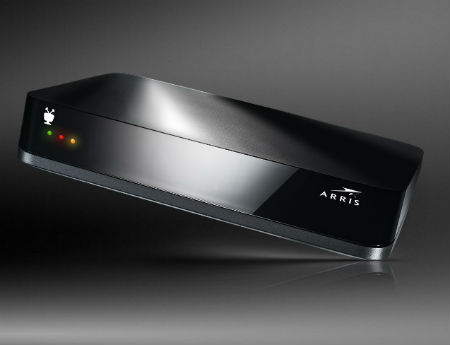Memory Pricing Continues to Put Pressure on Arris’s Set-Top Business
The smarter way to stay on top of the multichannel video marketplace. Sign up below.
You are now subscribed
Your newsletter sign-up was successful

Rising prices on memory will continue to have an adverse effect on Arris’s set-top box business this year, though perhaps not quite as much as they did in 2017.
“Increased DRAM prices have clearly affected ARRIS, degrading EBITDA by over $100 million in 2017,” Simon Leopold, analyst at Raymond James, pointed out in a research note based in part on his discussion yesterday with Arris CFO Dave Potts at the firm’s 39th Annual Institutional Investors Conference. “Although the rate of increasing costs has slowed, ARRIS is not anticipating a reversal in 2018.”
He noted that much of the DRAM used by Arris goes into set-tops, which contribute about 45% of sales.
Arris has already started to outline how it will address the memory cost issue and drive more efficiencies into its CPE business, noting last month that it will be “more selective” with set-top deals, with an emphasis on profitability more so than sales growth.
RELATED: Arris to Be ‘More Selective’ With its Set-Top Box Business
Likewise, Arris is “in extensive discussions with customers to adjust pricing to reflect increased memory costs, and are being increasingly more selective on the projects that we pursue,” Bruce McClelland, Arris’s CEO, said on the company’s Q4 call last month.
Though set-tops are a big part of Arris’s business today, the company has been branching out to adjacent areas, like mobile and wireless and enterprise, via its acquisition of the Ruckus Wireless and ICX Switch businesses from Brocade soon after Brocade’s merger with Broadcom.
The smarter way to stay on top of the multichannel video marketplace. Sign up below.
Such moves give Arris “exposure to an adjacent market and helping it drive growth and provide diversification,” Leopold noted, adding that the company reiterated a growth expectation of 20% year-on-year in that segment as wireless marks a “natural progression” for Arris.
He added that Arris also expects the mix of sales to cable operators to shift to network investments and transmission products and away from set-tops and other CPE, with an expected benefit going to sales of Arris’s converged cable access platform (CCAP) gear and software and as MSOs start to move to distributed access architectures.
And Potts reiterated Arris’s stance that M&A will continue to be consideration in Arris’s growth strategy, though plans for capital allocation will be balanced to include buybacks, Leopold said.
"Yes, I think M&A will continue to be part of what we do," Potts said, according toLight Reading. "What I worry about in five years from now if we aren't continuing to add, what is it that we will have? Who will we be as a business?"
